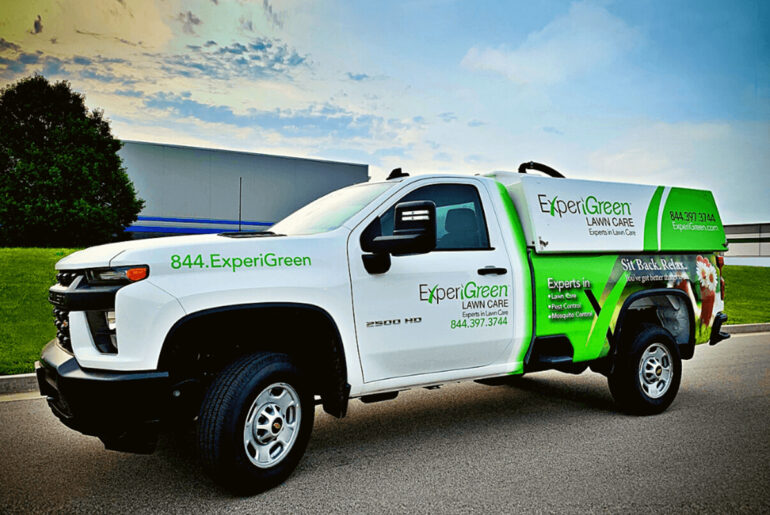Marketing is a complicated process that requires comprehensive, tailored solutions. What works for one brand might not work for another and there are countless channels — like paid search, social media, and search engine optimization — to promote various products and brands. Companies often invest in multiple strategies and look for full-service promotional tools to execute these tactics.
Artificial intelligence has been part of marketing for several years but is increasingly popping up in various apps and software systems. AI tools help marketing teams work toward smarter business growth by reaching their target markets, engaging with more customers, and providing personalized messaging.
Learning more about the strong partnership between AI and marketing can help you find smart ways to integrate this valuable tool within your business.
Personalization
One of the most valuable ways that AI supports marketing is through personalization, which enables the right ads to reach the best possible audiences. Customers increasingly want tailored solutions to their problems and recommendations, based on their needs. AI empowers marketers to offer these solutions without taking on hours of manual work and programming.
Here are just a few examples of how you can leverage AI tools for better personalization in your marketing:
- AI-powered email marketing tools can segment a list of 10,000 recipients into dozens of subgroups based on their interests.
- E-commerce websites can recommend similar products based on buyers’ interests.
- AI-assisted demographic marketing can allow social media users to see ads based on brands they’re interested in, or for products they need.
When segmentation and retargeting have been around for decades, AI systems improve these marketing tactics and make them more advanced.
Optimizing Digital Advertising Campaigns
Personalization improves the user’s customer experience because they see ads that are more relevant to their interests. This makes them more likely to engage with the content and buy the products. However, AI does more than help brands grow sales — it also helps companies save money.
Optimization means brands can reach fewer people while still driving better results.
Here are a few ways to optimize your campaigns through AI:
- Identify poor-performing keywords in your paid search campaigns to eliminate waste.
- Auto-segment customers based on their behavior to send more meaningful email messages.
- Micro-target audiences based on their interests to increase engagement.
This dual benefit of increased sales and lower costs is why so many marketing teams are investing in AI.
Chatbots and Customer Service Automation
Companies are increasingly investing in AI tools to support their customer service representatives (CSRs). Chatbots can identify customers’ pain points, sending issues to specific CSRs for support. Chatbots can also address simple issues by themselves which frees up time for human support teams to solve complex problems.
For example, an AI chatbot for a commercial cleaning service can schedule appointments with repeat customers and add them to the calendars of technicians. This reduces the need for administrative support so customer service representatives can help new clients and customers with complex problems instead.
Here are a few services AI customer service tools can provide:
- Help customers confirm, change, or cancel appointments.
- Process returns and cancellations.
- Provide information about store hours and other operational notices.
- Send mass alerts about service disruptions, delays, or emergency closings due to weather or technical problems.
Chatbots can respond to queries 24/7 and help an unlimited number of customers at once, helping people get the answers they need faster. This creates better experiences that help consumers think more positively about the brand.
Predictive Analytics for Data-Driven Decisions
Another benefit of artificial intelligence is the ability to look at large data sets and pull trends and key points from them. This can help marketers make better decisions from the information that drives better marketing results. AI tools can also use predictive analytics to make recommendations or adjust marketing strategies without the need for human intervention.
Here are a few key performance indicators (KPIs) your AI tools might track:
- Email open and engagement rates, which alert you to the success of your campaigns.
- User behavior on your website, like anticipating a bump in traffic on Cyber Monday.
- Social media trends to learn which posts and types of content are the most effective.
Your AI systems can make recommendations that your human marketing staff can implement.
Voice Search Optimization for SEO
Voice search became popular with the introduction of Apple’s Siri and has continued to grow with assistants like Amazon’s Alexa. At their most basic level, these tools listen for keywords in the queries and provide answers based on what they hear. However, developers are working to make these systems more advanced with the help of natural language processing (NLP). NLP allows people to have more in-depth conversations with AI, similar to discussions that people have with ChatGPT.
Marketers can target voice search in their SEO efforts. They can target long-form keywords that people might say when asking questions and break up their content to include more question-based subheads. This creates a new traffic stream for companies that can turn queries like, “Where is the appliance repair store,” into opportunities to bring customers into their shops.
Here are a few tips to optimize for voice search:
- Use questions in your headlines and subheads in the same way users would ask them.
- Build a Frequently Asked Question section into your content.
- Answer queries immediately and concisely in your content.
- Target long-tail keywords that have specific needs.
Know what your customers need when optimizing for voice search. This can help you create natural content for them.
Integrating AI Into Marketing Strategy
Your company might already incorporate AI into its marketing efforts by using an email marketing system, paid search vendor, or analytics platform with these capabilities. However, if you want to explore this tool further, take steps to test each opportunity before you fully invest in it by trying the following:
- Don’t try to create problems: Test AI options for an existing problem instead of trying to apply AI to processes that are already working.
- Invest in one tool at a time: That way you can objectively track its performance.
- Track key performance indicators (KPIs): Set tangible metrics to see how AI impacts your efforts, for example, by increasing your reach or improving your engagement.
- See how your customers respond: AI isn’t right for every audience so make sure your new tools don’t isolate your customers.
Essentially, you want to be mindful of how you incorporate AI into your marketing efforts instead of getting caught up in this fad without realizing how it can help you.
Choosing the Right AI-Powered Digital Marketing Software
Once you identify how you want to integrate AI into your marketing tactics, you can look for software solutions that address these needs. To choose apps and tools that are specific to your industry’s needs, you can take the following steps:
- Look for integrations: Invest in systems that work together or have APIs with your current apps.
- Set a budget: Make sure your AI tools are driving the return on investment you expect.
- Find tools for your business size: Whether you have a small business or run an enterprise, you need software solutions made for you.
- Watch your competitors: See which tools others in your industry use and love. You can attract customers with your branding and products but earn their loyalty with your smart business practices.
If you have a growing business, look for software solutions that will scale with you. Otherwise, you risk investing in an AI software system that doesn’t meet your needs two or three years from now.
AI can be a powerful tool for marketers, but you need to invest in it strategically. Consider how it can help you outsmart your competition by lowering costs while expanding your reach and engagement.




